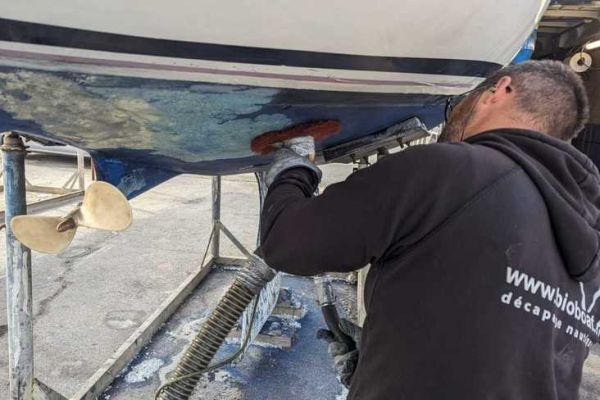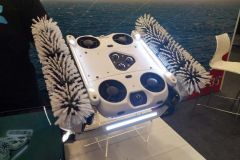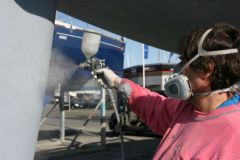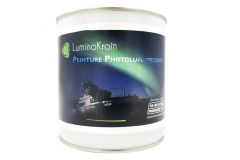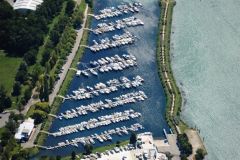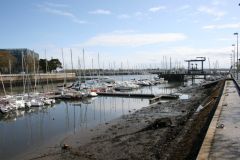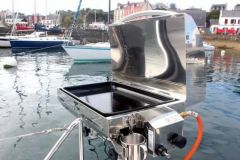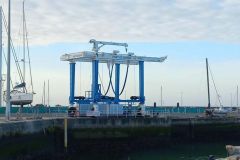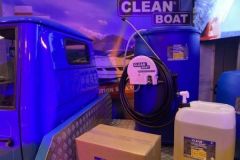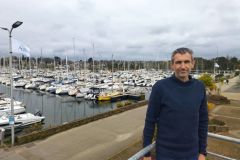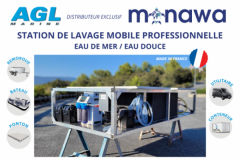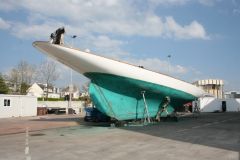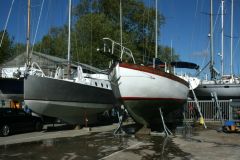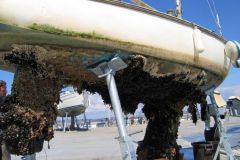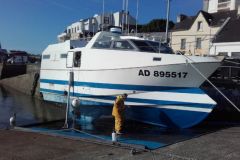A green concept
Launched in 2006, Biobat has broken new ground in the hull treatment market with the launch of a stripping solution using an exclusive plant-based abrasive, as founder Thierry Schrive explains:
"We use a granulate composed of plant-based polymers. We have developed our process around several types of abrasive, depending on the nature of the surface to be treated. The material is projected at high speed onto the surface to be treated. It scours the hull, but without damaging it.
Our system then vacuums up the sprayed abrasive, along with the antifouling residue. This is then processed in a circular filter to separate the granules from the particles of used antifouling. The latter goes into a recovery tank, and the abrasive is again sprayed onto the surface to be treated.
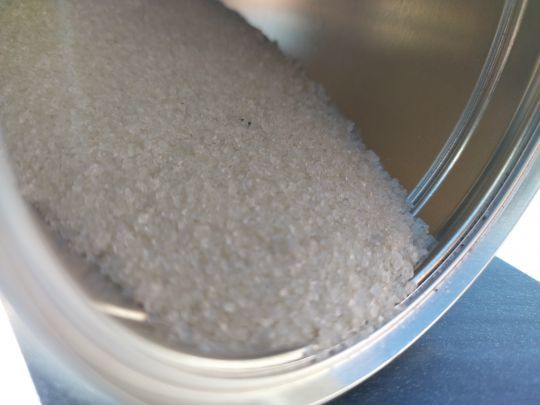
No residues are discharged, so there's no need to tarp or cocoon the work area .
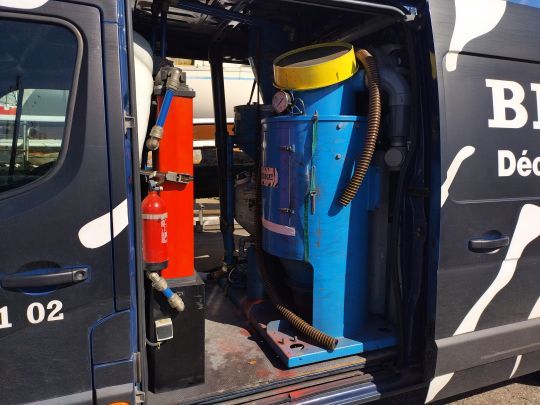
This idea came from my own experience. Like many yachtsmen, refit was a tedious and polluting operation every year. After studying existing stripping solutions in other applications, notably aviation, I brought out my first proto in 2004, and went to La Rochelle to test it on a Contest 43. The whole system was in the test phase, and it took us almost a week to complete the job!"
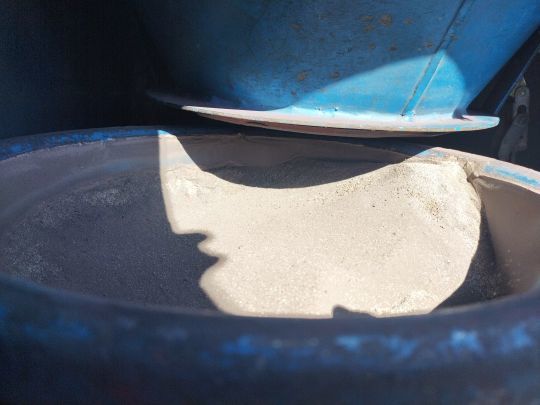
A concept for all types of boats
From wooden dinghies to cruising yachts and polyester houseboats, virtually any type of boat can be treated with this system:
"We can work on all materials: gelcoat, polyester, kevlar, carbon, aluminum, wood... The abrasive acts without altering surfaces, allowing selective stripping, layer by layer or complete depending on the granulometry used, and preserving prior preparations. Our mobile unit enables us to work anywhere, on building sites, careening areas, but also indoors."
Three interventions on a wide variety of media
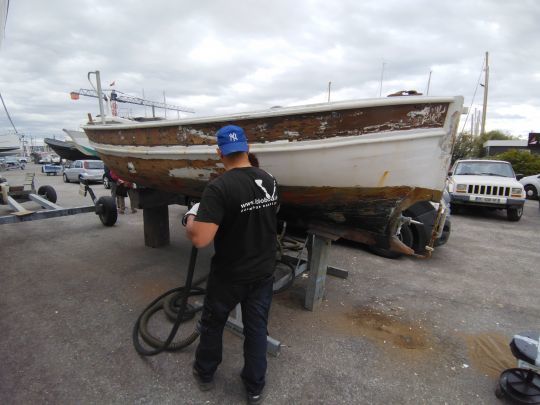
To validate the operation, we followed 3 interventions on 3 different hulls. The first project concerns a 1958 wooden pointu, which has just changed hands. The new owner wants to carry out a major refit, and needs to make a precise diagnosis of this almost 70-year-old hull.

The hull hasn't been stripped for twenty years, but that doesn't pose any particular problems for our strippers. The multitude of antifouling thicknesses is easily removed, facilitating the carpenter's expertise.
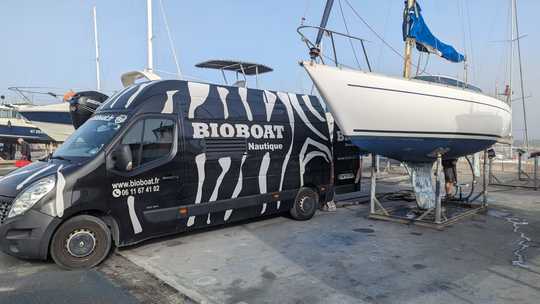
The second project concerns a regatta yacht, Ecume de Mer. In order to improve the glide of this Finot-designed hull, the owner wanted to expose the living works before applying a new erodible antifouling. But on this regularly careened boat, there's only one coat, and it disappears very easily.


The third project concerns an Atoll 43 designed for family coastal cruising. For its owner, the aim is firstly to improve the boat's glide, but also to spot any osmosis bubbles, which are easier to see on a bare hull.

Prices start at ?60 per m2, including VAT. That's a bill of around ?1,000 for Ecume de Mer.
A business poised for growth
"Our entire system and tools are patented and benefit from our 18 years of development and experience. Since November 2023, we've been working with a franchisee in the Balearic Islands, with exclusivity for the Iberian territory, and we've also opened our own office in La Rochelle. We have 4 mobile units to cover the whole of France. Our process requires no water and discharges nothing into the open air. Because of the drought last summer, some ports banned freshwater rinsing, preventing careening operations, but our system still allows this operation to be carried out."
